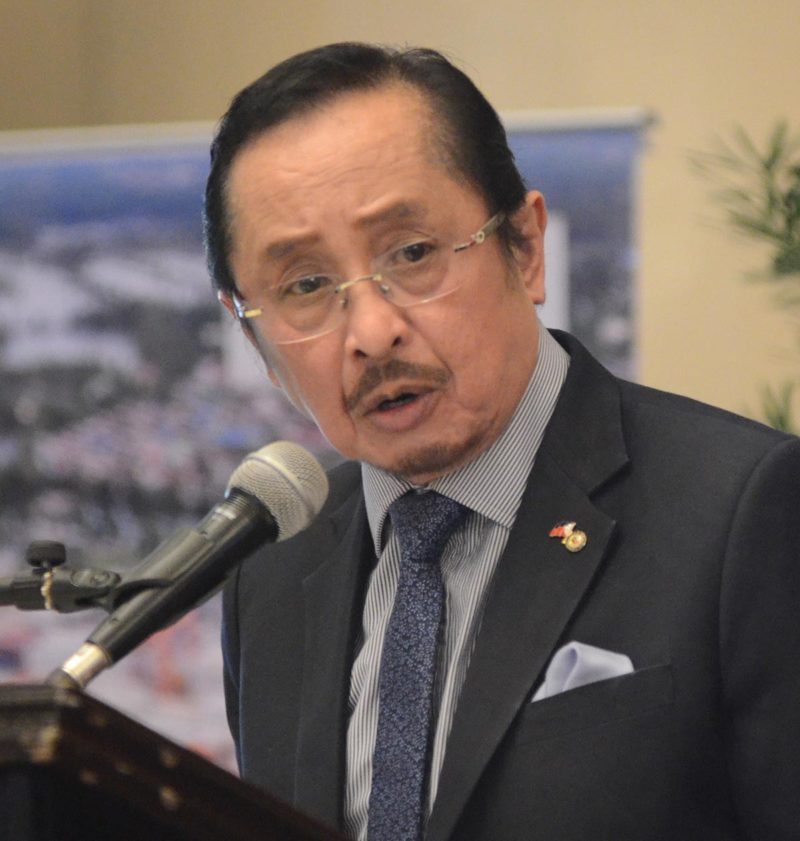

The Mindanao Development Authority (MinDA) is eyeing Tawi-Tawi as an economic zone and freeport in addition to being the next transshipment hub of Asia.
MinDA Secretary Datu Haj Abul Khayr Alonto, in a keynote address during the recent 3rd Mindanao Shipping Conference 2018 organized by PortCalls and Asia Customs & Trade in Davao City, said Tawi-Tawi can be an alternative transshipment hub to Singapore, which has become crowded.
“Likewise, Malacca is getting too crowded also, so we need another shipment hub and that is Tawi-Tawi,” Alonto said.
He noted that the island province is surrounded by waters serviced daily by both domestic and foreign vessels.
The plan to make Tawi-Tawi a transshipment hub is meant to support the Philippine shipping industry, and boost connectivity between the country and other regions, Alonto said.
“This is in support of the shipping industry—the connectivity, the movement of goods and people. Because Tawi-Tawi is your land. Tawi-Tawi is your future, too…This will be the next [transshipment hub]. Again, there’s nothing wrong [with having a] dream,” Alonto said.
To achieve the plan, Alonto said MinDA has been working to implement the Tawi-Tawi Economic Zone and Freeport project, hoping to get it done before the current administration’s term ends.
Another plan is to have a shipyard for shipbuilding and ship repair in Tawi-Tawi, also in support of the transshipment hub goal.
Aside from Tawi-Tawi, MinDA is working on other projects in Mindanao, such as putting up more Freeports and projects under the Brunei, Indonesia, Malaysia, Philippines-East ASEAN Growth Area (BIMP-EAGA), to improve and support economic activities in the region.
MinDA is the Philippines’ coordinating office for BIMP-EAGA, the sub-regional economic cooperation between the four ASEAN countries.
Alonto said that under the BIMP-EAGA Vision 2025 Development Roadmap finalized in 2017, the Philippines’ identified Priority Infrastructure Projects (PIPs) were valued at US$4.7 billion, with 26 connectivity-related projects for Mindanao and Palawan out of 57 BIMP-EAGA PIPs.
Specifically, improving Mindanao and Palawan seaports and trade facilitation facilities will amount to $472 million. These PIPs aim to generate cross-border activities, promote access to markets, reduce trade and transport costs, and facilitate growth between neighboring production, export, and consumption points.
Ro-ro service
In April 2017, the Davao-General Santos-Bitung roll-on/roll-off shipping service was launched to stimulate trade between the Philippines and Indonesia.
Maintaining the service has, however, been difficult. The service has been on hold for some time now because of lack of volume.
The Zamboanga-Sandakan-Tawi-Tawi shipping service has now been revived, following the official request of MinDA to the Malaysian Signing Minister and lobbying with Malaysian transport authorities last June in Kota Kinabalu, Sabah. The Malaysian side agreed to change some of its policies on documentary requirements needed from the Philippines, Alonto said.
Alonto added that they are hoping a sustainable inter-island sea trading route will be made permanent between the two countries.
Meanwhile, Alonto is asking the private sector to support MinDA’s plans for Mindanao.
“We need everyone’s inputs, action, and vision to work with us in the government. While we know that most of our jobs entail providing viable investment policy support and business enabling environment, the larger part of concrete development happens when we have you in the loop, our colleagues from the private sector,” he said.
“Specifically, your transport and logistics sector is a crucial development driver for Mindanao’s progress, especially in the area of domestic and international trade amidst current economic integration and globalization,” Alonto explained.
“We are preparing Mindanao because we are no longer talking about Mindanao or the Philippines alone; we are now talking about ASEAN economic community as one economic group, and we have to be a strong member,” he said. – Roumina Pablo




